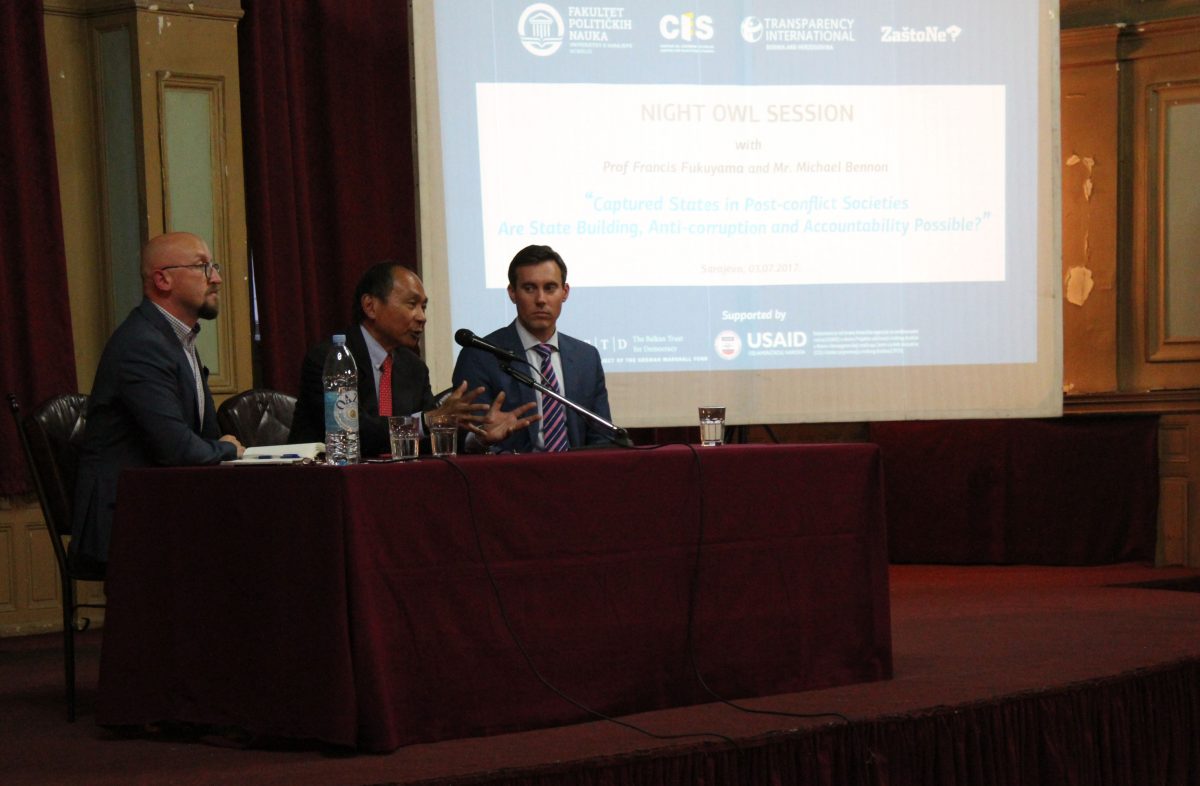Professor Fukuyama: Ethnic divisions hinder progress, politicians use it for manipulation

This is one of the most famous American and world intellectuals, the author of “The End of History”, who was guest tonight at the session on the topic “Prisoned State in a Sub-Conflict Society” held in Sarajevo organized by the Center for Electoral Studies, Transparency International BiH, CA ‘Why not’ and the Faculty of Political Science of the University of Sarajevo.
Professor Fukuyama said in a statement to the media that he had said that the issue of reaching a consensus came in the sphere of politics, and that BiH is no exception in this regard. He noted that the “captured” and dysfunctional state in the case of BiH is a result of special circumstances, the Dayton constitution, complex institutional structures and situations in which ethnic divisions are preferred and hinder progress that would be oriented towards strengthening trust and acting for the benefit of all. It is thought that ethnic divisions in BiH, or ethnicities, serve politicians as a basis for knowing manipulation.
Addressing the participants of the session, Fukuyama has elaborated a number of issues characteristic of the current momentum of modern states, further democratic development and strengthening of the rule of law, including government responsibility, building and strengthening of institutions, as well as an effective fight against corruption, with reference to the US experience on this plan.
Fukuyama is a professor of political economy. His most famous work, “The End of History and the Last Man,” has caused great public interest and has been published in over twenty editions worldwide.
Sarajevo visits the Academy of Leadership Development, held from 2th to 7th July, organized by the Center for Electoral Studies, Transparency International BiH, CA ‘Why not’ and the Faculty of Political Science of the University of Sarajevo in cooperation with the Center on Democracy , Development, and the Rule of Law (CDDRL) of the Stanford University.
(Izvor)